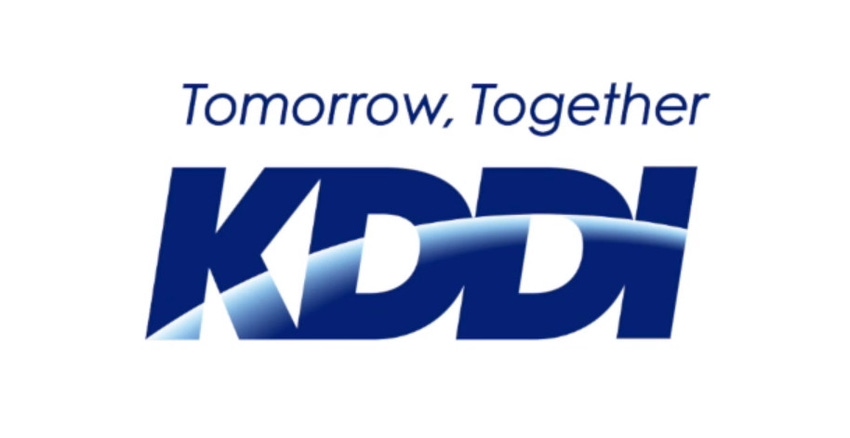In a strange turn of events, both Ericsson and Nokia have made announcements claiming to be the primary partner for the efforts of Japanese telcos to drive towards 5G.
September 30, 2019

In a strange turn of events, both Ericsson and Nokia have made announcements claiming to be the primary partner for the efforts of Japanese telcos to drive towards 5G.
Unless there is a different definition of ‘primary’ in the Nordics, someone is up to a bit of funny business.
Looking at the Ericsson announcement first, the Swedes are claiming to be the primary 5G vendor with the first commercial live 5G services to be available from March 2020. As part of the agreement, Ericsson will supply KDDI with Radio Access Network equipment, including products and solutions from the Ericsson Radio System portfolio.
“Having established our important partnership with KDDI in 2013, we have now expanded our collaboration efforts,” said Chris Houghton, Head of Market Area North East Asia for Ericsson. “We are excited about our involvement in KDDI’s 5G network buildout, which will provide a sound basis for our future collaboration as well as allowing our partner to offer users a whole new generation of mobile services.”
Over in Finland, Nokia has said it has been selected by KDDI as a primary partner. There might be a bit of nuanced language here, though it would certainly be unusual to have more than one primary.
Looking at the two statements, Ericsson is claiming to be “the” primary partner while Nokia is claiming to be “a” primary partner. This might be the slight difference we have been searching for to understand why such little regard has been afforded to the dictionary.
If more than one company is being granted the title of “primary”, in our opinion, it undermines the concept entirely.
“This deal will allow KDDI to get ready for the 5G era and we are honoured and excited to continue our long-term relationship,” said John Harrington, Head of Nokia Japan. “As an end-to-end supplier of multiple technologies to KDDI, we look forward to transforming the network and launching 5G for consumers and industries.”
Nokia’s agreement suggests its radio access solution AirScale will be used to support both cmWave and mmWave 5G frequency bands across its network.
As it stands, Nokia currently has 48 5G commercial contracts in place, though it is not clear how many 5G base stations the company is manufacturing or shipping each month. Alongside this agreement, Nokia also signed a pact with Vodafone New Zealand last month, with the telco planning to launch 5G services towards the end of 2019.
In Sweden, Ericsson has signed 25 5G commercial contracts, while it announced deals with Nex-Tech Wireless and RINA Wireless earlier this month. These are not the biggest deals you could imagine, both the telcos are regional US carriers, though considering the size of some of the areas covered (Kansas, Utah, Alaska, Idaho, Wyoming, Colorado, and Oregon) they are useful contracts to collect. Ericsson is also not unveiling how many base stations it has shipped to date.
Ericsson is claiming to be involved with two-thirds of the live deployments worldwide, while Nokia has said it is providing equipment to 11.
The two announcements with KDDI are perfectly demonstrative of the situation both Nokia and Ericsson are in currently. With Huawei running riot through the 4G era, these two vendors will have to prove their on-point heading into the 5G epoch. It might be little more than chest-beating for the management team to prove to investors they are not falling that far behind the Chinese rival.
Huawei has claimed to so far gained 50 5G commercial contracts and shipped more than 150,000 base stations. With the Chinese vendor under severe pressure from the US Government, some would have assumed both Nokia and Ericsson would have benefitted greatly, though this does not appear to be the state-of-play currently. They are both doing well, but given the context, is it good enough?
Over the last few years, Nokia CEO Rajeev Suri has promised 5G would bring fortunes for the company, while Ericsson was forced into replaced its CEO in early 2017 to steady the ship. Börje Ekholm has done a perfectly reasonable job though rumours have emerged he is ready to step down.
What should be worth noting is that Ekholm was CEO of Investor AB prior to assuming control at Ericsson. Investor AB is a notable investor in Ericsson, so it would have been reasonable to presume his time at the top would have been limited. Saab CEO Håkan Buskhe has announced he will be leaving the automotive company, with local press suggesting he is in-line to take over.
Ericsson is yet to provide clarity on the situation, though Nokia has suggested KDDI would be able to clear up the situation.
About the Author(s)
You May Also Like








.png?width=300&auto=webp&quality=80&disable=upscale)


_1.jpg?width=300&auto=webp&quality=80&disable=upscale)


.png?width=800&auto=webp&quality=80&disable=upscale)